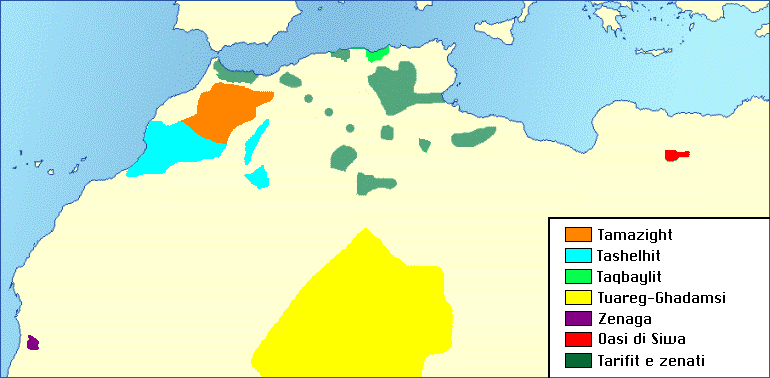Tehenu
Tehenu and Temehu
Tehenu and Temehu are terms used in the ancient inscriptions of Egypt when referring to the Libyans. Ulrich Hofmann links them with the predecessors of the Berbers whom he identifies as the people of Atlantis in his recent book, Platons Insel Atlantis[161] published in German. Similar views are held by Alberto Arecchi.
Robert Temple discusses[736.414] the etymology of ‘ Ta Tehenu’ which although used to refer to Libya actually means ‘olive land’.
There is a website(a) which gives an overview of the land of the Temehu from 55 million BC until modern times. In 1983 UNESCO commissioned A.H.S. El-Mosallamy to write a paper on the relationship between the Tehenu and ancient Egypt(b).
*The Libyans controlled North Africa as far as the borders of Egypt and were constantly in conflict with the Egyptians. Plato describes the Atlantean control in North Africa in similar terms, which also fits with the Libyans (Labu) as one of the allies of the Sea Peoples .*
(a) https://www.temehu.com/History-of-Libya.htm
(b) https://unesdoc.unesco.org/images/0005/000577/057711eb.pdf
Berbers *
The Berbers of North Africa, sometimes referred to as Amazigh, are blond and blue-eyed where they have not interbred with the Arab population.
 They are genetically related to the Saami people of northern Scandinavia according to mtDNA studies(g) published in the American Journal of Human Genetics in 2005. It is frequently mentioned that the Berbers refer to a rich land called Attala situated in the west. The Berbers are probably related to the Guanches of the Canary Islands who were also blond with blue/grey eyes. Although the Spanish virtually wiped out the Guanches, there are still native tall blond blue-eyed individuals to be seen in the Canaries.
They are genetically related to the Saami people of northern Scandinavia according to mtDNA studies(g) published in the American Journal of Human Genetics in 2005. It is frequently mentioned that the Berbers refer to a rich land called Attala situated in the west. The Berbers are probably related to the Guanches of the Canary Islands who were also blond with blue/grey eyes. Although the Spanish virtually wiped out the Guanches, there are still native tall blond blue-eyed individuals to be seen in the Canaries.
Genetic studies in 2009 offered evidence that the first inhabitants of the Canaries were Berbers(a). In 2017, additional investigation offered further confirmation of this relationship, published in a report in the October edition of Current Biology(h) and expanded on in an article on the Ancient Origins website by Alicia McDermott(i).
The Berbers also constructed pyramidal structures as tombs or temples such as that at Madghacen in Algeria(e).
Frederick Dodson designated the Berbers as Atlanteans in chapter 4d of his book Atlantis and the Garden of Eden[0989].
Recently Ulrich Hofmann has offered evidence[161] that the predecessors of the Berbers were the people of Atlantis. He identifies these Atlanteans with the Temehu and Tehenu of ancient Libya, recorded in the ancient inscriptions of Egypt. Emmet Sweeney follows a similar line claiming[700.36] that “if we seek the modern descendants of the Atlanteans, we must search among the Berbers”.
David Eccott, a British advocate of very early pre-Columbian trans-Atlantic contacts, has a paper on Andrew Collins’ website in which among others, he claims that Berber seafarers reached the Americas and that rock art in Utah can be attributed to them(j).
The difficulties attached to tracing ancient ‘Libyans’ are outlined in a paper, What Happened to the Ancient Libyans, by Richard L. Smith (1945- ). This essay can be downloaded as a pdf file(b) and is highly recommended as it gives additional insights into the credibility of many of the classical writers frequently quoted in connection with the Atlantis story.
Following the 2011 fall of the Gaddafi regime in Libya, the Berbers there, who were particularly repressed, have again begun to assert their right to greater cultural expression, considering themselves to be the original Libyans(c). However, a report from Reuters dated 18/10/12(d) tells of the destruction of an 8,000-year-old petroglyph by Islamic extremists in an Amazigh region of Morocco. This is the latest example of efforts by the Islamic Salafists to destroy evidence of pre-Islamic culture.
Bob Idjennaden and Mebarek Taklit have written[1195] of the prominent part played by Berbers in the shifting alliances that constituted the ‘Sea Peoples’, who attacked Egypt at least twice during the 2nd millennium BC.
The possibility of a link between the Berbers and Atlantis has now been extended to include the Richat Structure(k). Although to propose an association of the Berbers with the Richat Structure is not too outlandish, once again there is no attempt to explain why or how anyone would launch an attack from Mauritania on Athens nearly 4000 km away by land (3000 km by sea). The idea is logistical nonsense and completely unsupported by any archaeological evidence!
(a) https://www.sciencedaily.com/releases/2009/10/091021115147.htm
(c)https://www.bbc.co.uk/news/world-africa-16289543
(d) https://gulfnews.com/news/region/morocco/pagan-rock-carving-in-morocco-destroyed-1.1091000
(e) Madghacen 3rd century BC Mausoleum, page 1 (archive.org) *
(f) See: Archive 3608
(g) https://www.ncbi.nlm.nih.gov/pmc/articles/PMC1199377/
(h) https://www.cell.com/current-biology/abstract/S0960-9822(17)31257-5
(j) https://www.andrewcollins.com/page/mysteries/deccott.htm

